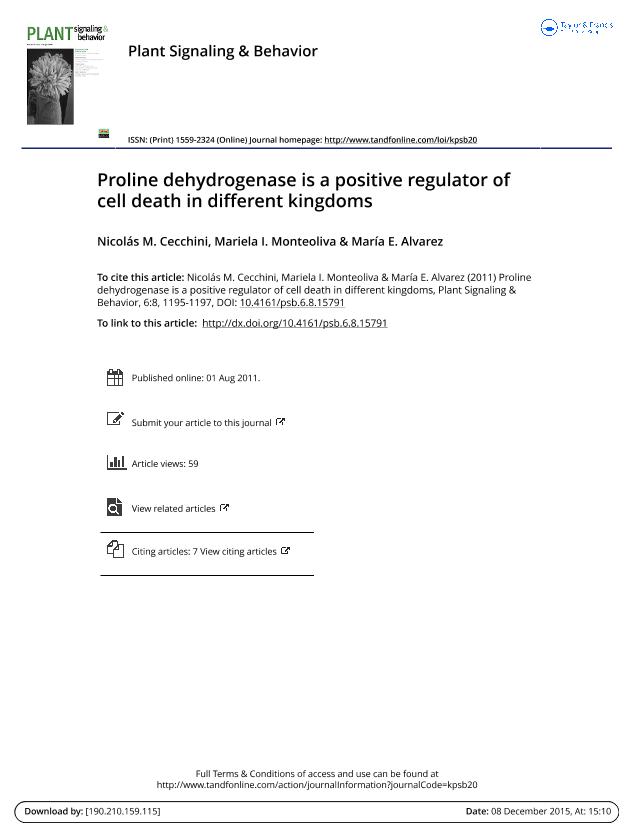Artículo
Proline dehydrogenase is a positive regulator of cell death in different kingdoms
Fecha de publicación:
01/08/2011
Editorial:
Taylor & Francis
Revista:
Plant Signaling and Behavior
ISSN:
1559-2316
e-ISSN:
1559-2324
Idioma:
Inglés
Tipo de recurso:
Artículo publicado
Clasificación temática:
Resumen
Proline dehydrogenase (ProDH) catalyzes the flavin-dependent oxidation of Pro into Δ1-pyrroline-5-carboxylate (P5C). This is the first of the two enzymatic reactions that convert proline (Pro) into glutamic acid (Glu). The P5C thus produced is non-enzymatically transformed into glutamate semialdehyde (GSA), which acts as a substrate of P5C dehydrogenase (P5CDH) to generate Glu. Activation of ProDH can generate different effects depending on the behaviour of other enzymes of this metabolism. Under different conditions it can generate toxic levels of P5C, alter the cellular redox homeostasis and even produce reactive oxygen species (ROS). Recent studies indicate that in Arabidopsis, the enzyme potentiates the oxidative burst and cell death associated to the Hypersensitive Responses (HR). Interestingly, activation of ProDH can also produce harmful effects in other organisms, suggesting that the enzyme may play a conserved role in the control of cell death.
Archivos asociados
Licencia
Identificadores
Colecciones
Articulos(CCT - CORDOBA)
Articulos de CTRO.CIENTIFICO TECNOL.CONICET - CORDOBA
Articulos de CTRO.CIENTIFICO TECNOL.CONICET - CORDOBA
Citación
Cecchini, Nicolas Miguel; Monteoliva, Mariela Inés; Alvarez, Maria Elena; Proline dehydrogenase is a positive regulator of cell death in different kingdoms; Taylor & Francis; Plant Signaling and Behavior; 6; 8; 1-8-2011; 1195-1197
Compartir
Altmétricas




